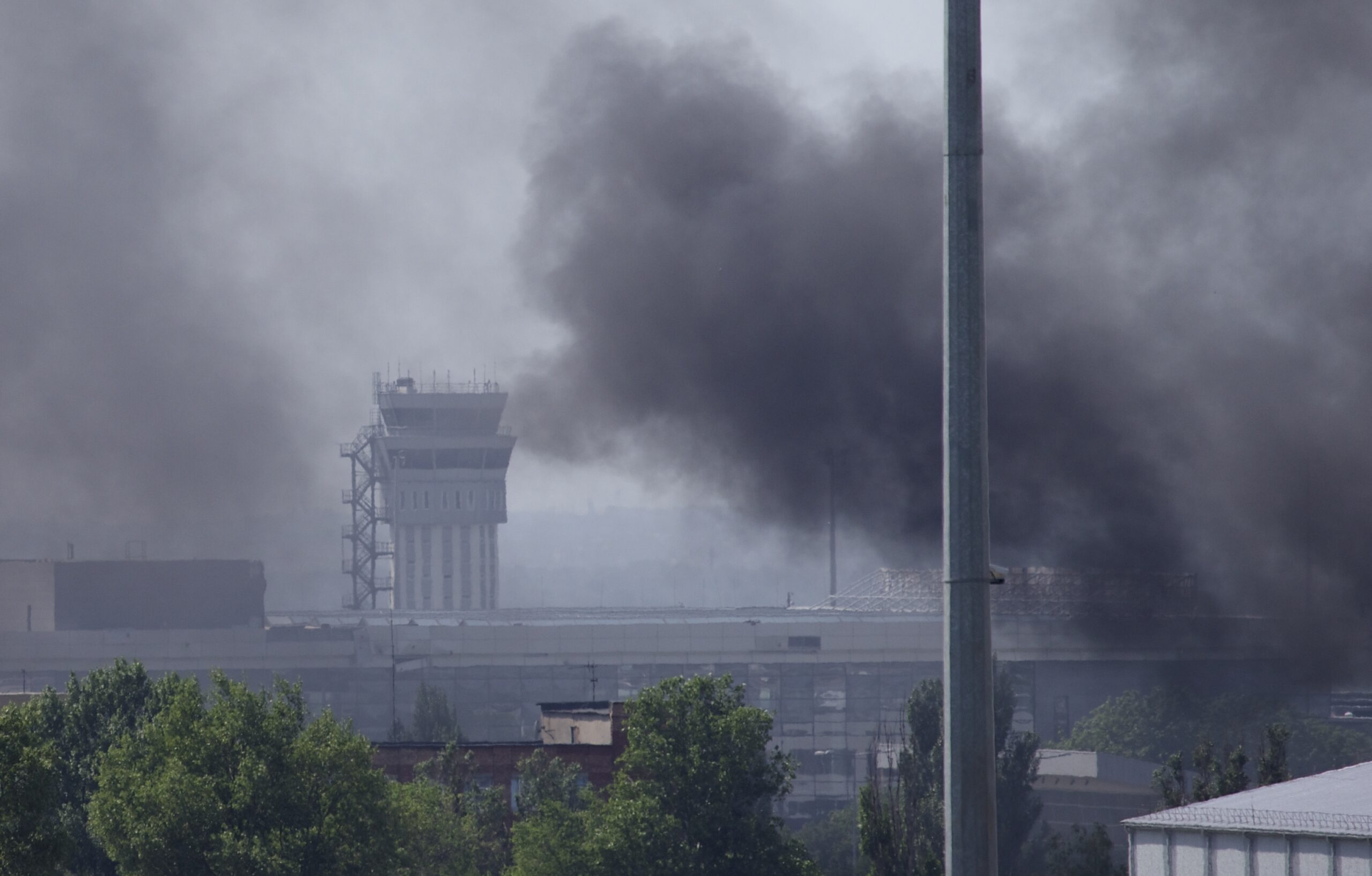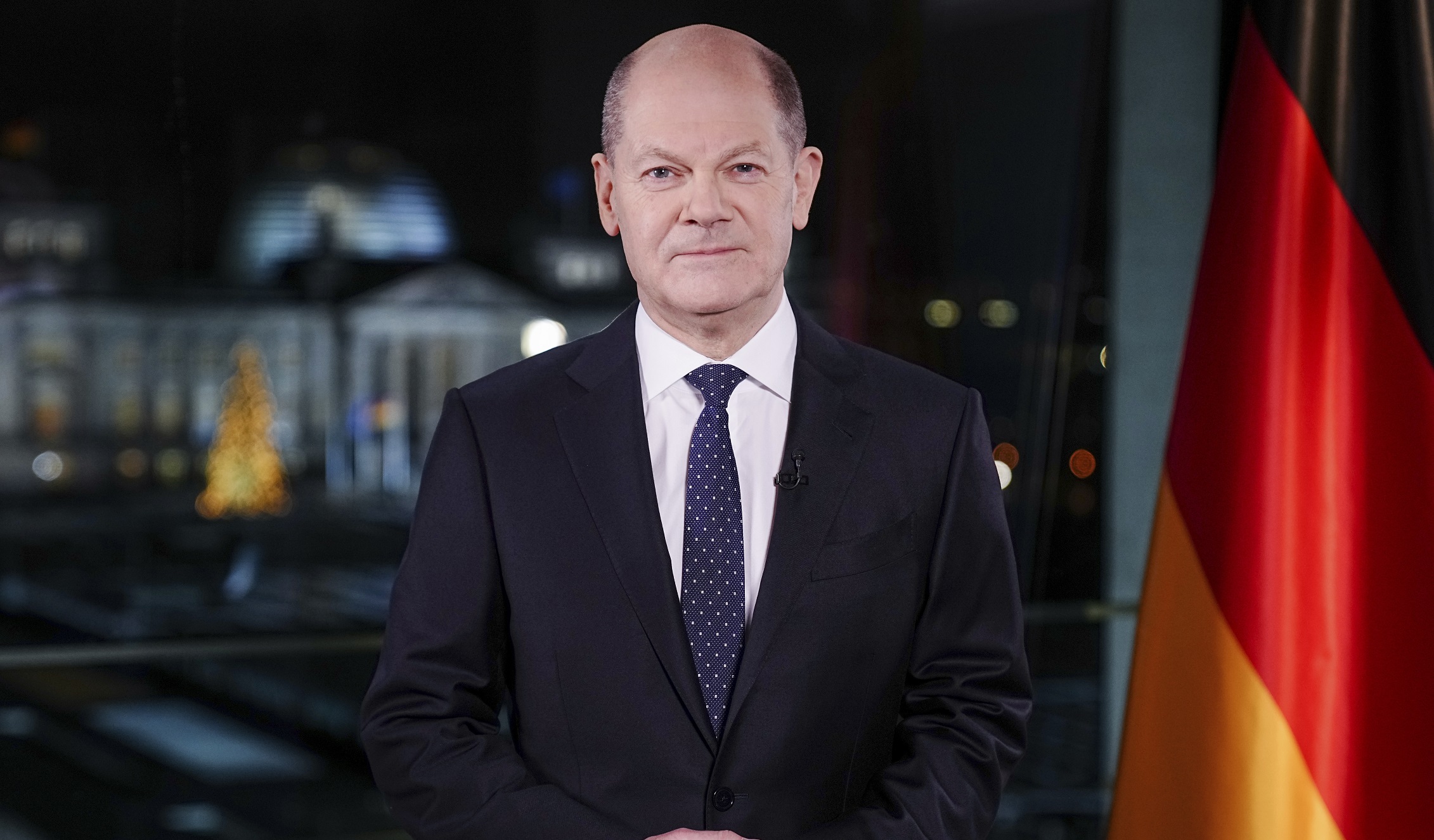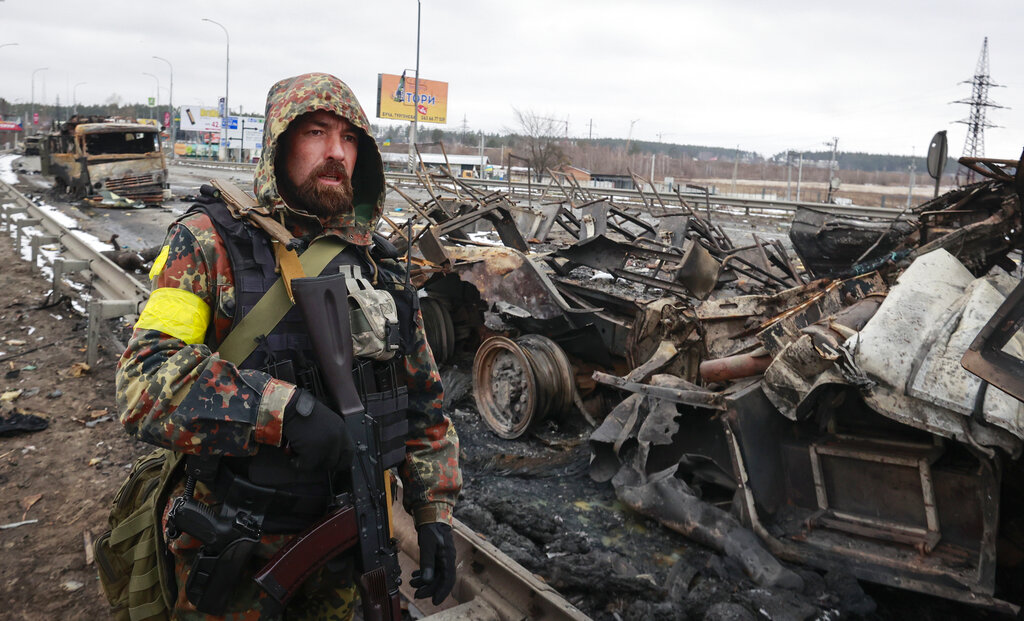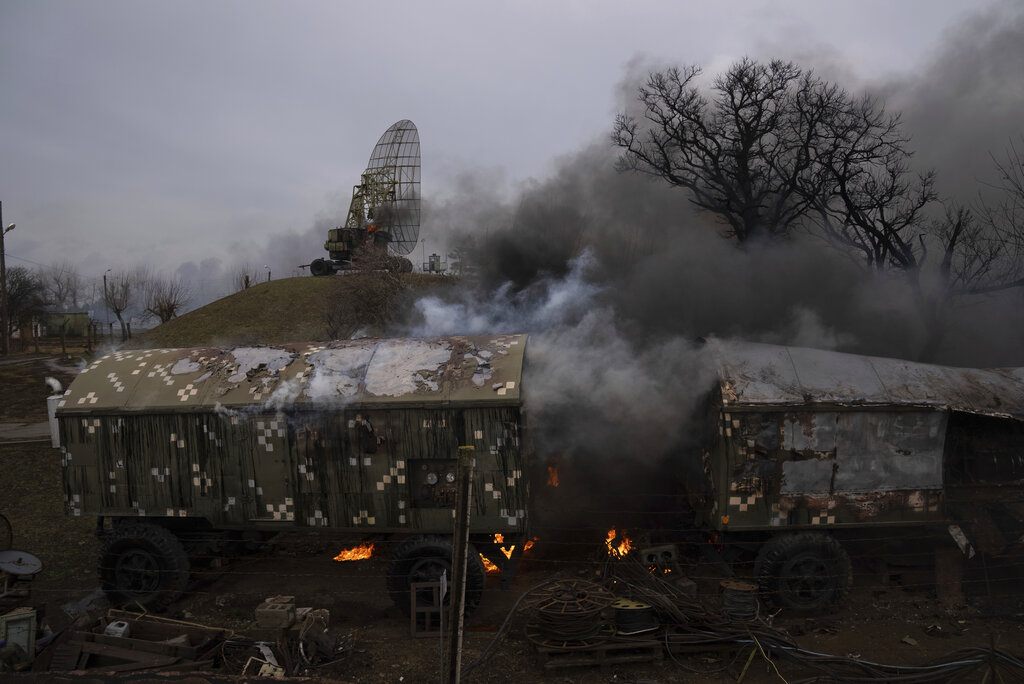One week ago, Russian President Vladimir Putin ordered his military to attack neighboring Ukraine, setting off an extraordinary chain of events that has led to harsh financial sanctions, thousands of deaths, one million refugees, and the fall of a major Ukrainian port city.
According to French President Emmanuel Macron, “the worst is yet to come.”
Since the start of the invasion, Moscow has laid siege to urban areas across Ukraine, targeting critical infrastructure and aiming weapons at schools, hospitals, and transportation centers. Ukrainians have been stripped of basic services and in many areas have no access to clean water, food, or heat.
The near-constant bombardment has deepened a humanitarian crisis of terrified Ukrainians fleeing their country en masse, with many more expected to follow suit.
Despite some setbacks, Putin’s military blitz is showing no signs of letting up.

A 90-minute telephone call between Putin and Macron on Thursday left the French leader convinced “the worst is yet to come.”
The Kremlin’s press service quoted Putin as telling Macron that the objectives “of the special military operation will be fulfilled in any case.”

Despite the comments, Putin’s invasion hasn’t been the quick slam dunk he anticipated. Russia has not only received resistance from Ukrainian people fighting for their country, but also from the international community at large.
Several countries have made diplomatic U-turns in the past seven days, offering millions of dollars in aid and finding ways to get weapons into Ukrainian hands.
Switzerland, which almost always embraces neutrality, announced Monday it would freeze Russian financial assets. A preferred destination for Russian oligarchs and their money, Switzerland placed holds on the assets of Putin, Prime Minister Mikhail Mishustin, Foreign Minister Sergey Lavrov, and 367 others sanctioned last week by the European Union. Switzerland also closed its airspace to Russian aircraft.
German Chancellor Olaf Scholz, who called the invasion a turning point in European history, said Thursday his country would add 2,700 anti-aircraft missiles to its arms shipments to Ukraine. Germany had already approved the shipment of 1,000 anti-tank missiles and 500 U.S.-made Stinger surface-to-air missiles.

Other countries have also given Ukraine weapons. The Dutch sent rocket launchers, the Estonians sent Javelin anti-tank missiles, and the Czechs fast-tracked machine guns, pistols, sniper rifles, and ammunition.
NATO also moved military equipment and sent as many as 22,000 more troops into states bordering Russia and Belarus.
In the United States, the Biden administration has called on Congress to approve $10 billion in additional aid to Ukraine. The figure includes assistance to bolster Ukraine’s defenses, protect its electrical grid, and assist other European allies.
Over the weekend, the U.S. signed off on $350 million in emergency security assistance to Ukraine. The State Department announced it would include “lethal defensive assistance” that would help Ukraine handle armored and airborne threats.
Even though the international community has come together to push punishing sanctions on Russia in an effort to blunt Putin’s actions, some analysts have cautioned that placing a stranglehold on Russia’s $1.5-trillion economy won’t be easy. Moscow began buffering itself from international sanctions after it annexed Crimea from Ukraine in 2014. Since then, it has pared down its debt and built up reserves of foreign currency and gold.
But that is not stopping some countries from trying to pull at Russia’s purse strings.
On Thursday, France announced it had seized a yacht belonging to Igor Sechin, a close ally of Putin who runs Rosneft, the Russian state oil giant. Sechin is the main shareholder of the company that owns the yacht, which was in La Ciotat for repairs but was “preparing to urgently cast off” when custom officers arrived.
Private businesses are also going after Russia.

Spotify closed its Russian office indefinitely, while Netflix, Dell, and furniture giant IKEA have distanced themselves from Moscow.
Tech leaders Google and Apple removed all content from RT and Sputnik from their platforms, and Oracle tweeted Wednesday that it has “already suspended all operations in the Russian Federation” after Ukrainian Vice Prime Minister Mykhailo Fedorov publicly urged the company to stop doing business in Russia “until the conflict is resolved.”
Volkswagen and Mercedes-Benz announced they would be halting production at their facilities in Russia, as well as suspending exports of all vehicles to the country.
In Geneva, the United Nations Human Rights Council began debating Thursday about establishing an international commission of inquiry to investigate war crimes by Russia, the New York Times reported.
Michelle Bachelet, the U.N.’s top human rights official, said Russia’s invasion of Ukraine has “opened a new and dangerous chapter in world history.”
As much of the Western world tries to rush to Ukraine’s aid, the situation remains dire.
The fall of port city Kherson has raised fears that other strategically important cities could be next.
Russian forces on Thursday appeared to be making their biggest gains yet in the south following reports they had nearly surrounded two other strategic port cities in a bid to control Ukraine’s entire Black Sea coast, which could cut off world shipping access to the battered Eastern European country.
CLICK HERE TO READ MORE FROM THE WASHINGTON EXAMINER
Russian troops have encircled the port city of Mariupol. Civilians there have been trapped by intense shelling for more than 15 hours.

The resistance was much stronger in Kyiv, where a 14-mile-long convoy of military tanks and armored vehicles remained about 18 miles from the city center.
